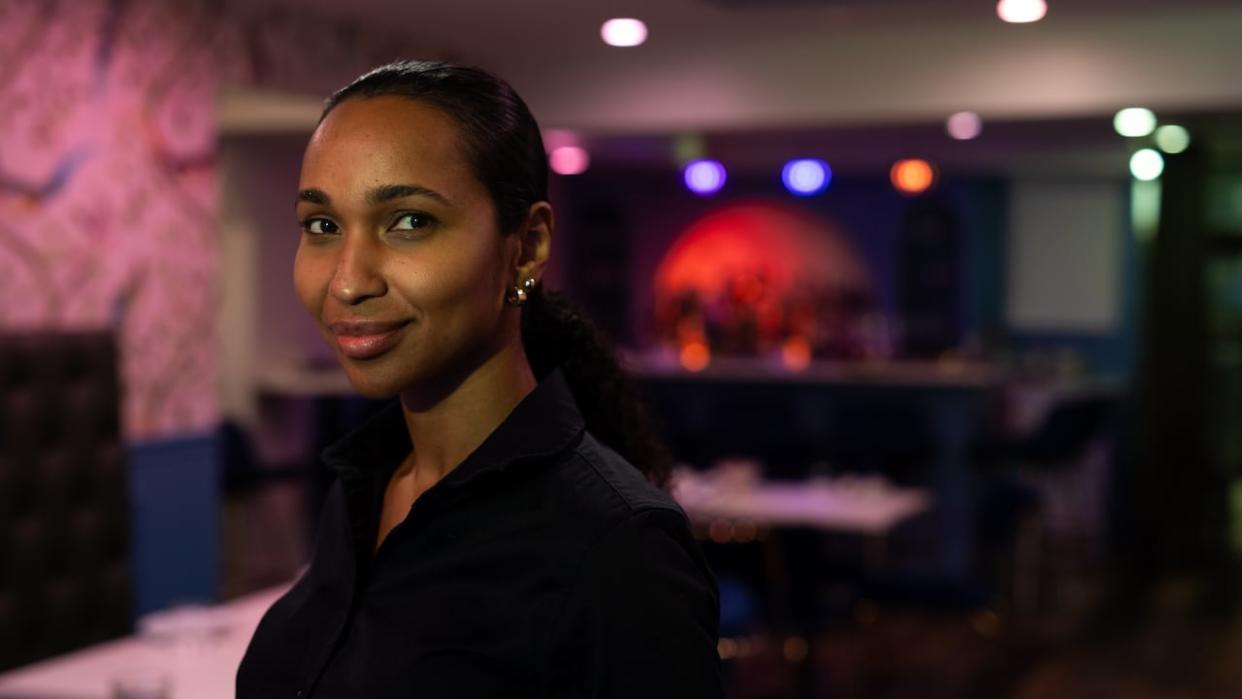Ottawa's restaurant scene rebounds, but patrons still 'counting their dollars'

When she stepped onto a Barrhaven strip mall parking lot last fall, Caroline Rossi was struck by an uncanny feeling.
"It was the strangest feeling I think I've ever had," said Rossi, who'd been at that same mall, in the depths of the pandemic, when her family's restaurant of 17 years shut down.
Operating La Porto a Casa through shifting public health orders on a skeleton staff was emotionally and physically exhausting, Rossi recalled.
But last September she was back, locking up and saying goodnight to her staff, after opening in a different space in the mall.
"It was the craziest déjà vu I've ever had," she said. "It was like yesterday — and yet three years had passed."
La Porto a Casa is part of a restaurant rebound in Ottawa: according to city data for food premises — which include restaurants, bakeries, butchers, caterers and cafés — there were 360 new licences issued from March 2023 to now.
That brings the total number of licences to 3,443, more than there were pre-pandemic and well above the 2,740 licences in 2020, when public health orders crushed the restaurant industry.
For Rossi, the decision to reopen was simple. Her family "live and breathe" their business, and couldn't bear living without it.
"We really felt lost," said Rossi. "We missed everyone. That's really what it came down to."
Bottomed out in 2020
Restaurants Canada vice-president Max Roy said the first half of 2023 was a time of optimism for the industry, with a feeling of "momentum" in the economy.
In Ontario, total receipts for food services and drinking place sales had bottomed out at $940 million in April 2020, according to data from Statistics Canada.
The latest numbers, from October of last year, put those receipts at $3.1 billion, well above the pre-pandemic total of $2.6 billion.
The difference is slight, but still positive, when accounting for inflation.
Hind Mubarak Brown was feeling that momentum when she opened her second restaurant, a French bistro called Vain in Versailles, on Preston Street in June.
"Off of the COVID tail-end it seemed — it still seems — like a great idea," she said. "I just think that the golden years are still ahead of us."
Government sponsored start-up loans made the decision easier. But the first six months of operations have sometimes been "harrowing," she said, as she deals with a tight labour market and surging prices for some ingredients.

Vain in Versailles, located on Preston Street in Little Italy. (Jean Delisle/CBC)
'Harder than we expected'
After years out of the restaurant game, Rossi has felt an even keener sense of sticker shock.
"That was an eye-opener," she said. "We priced out our menu and we were doing some costing in the beginning, and then we had to totally sit down and redo it once we went out."
Mubarak Brown finds customers seem "more accustomed now to counting their dollars" in a high-inflation, high-interest rate environment.
"We're definitely on the medium end as opposed to what I would expect to be the higher end of dining out," she said. "It's still definitely been harder than we expected."
Roy said those economic headwinds have blunted some of the optimism of early 2023.
"Things were looking better and better," he said. "As time kept going and as they saw the inflation still going up, what we saw is people being a bit more pessimistic, both the general population but also restaurant operators. We saw that they were less optimistic about the future."
'We were a real comfort to people'
Data suggests that full-service restaurants and bars are having the toughest go of it, according to Roy, while quick-service restaurants are posting stronger numbers.
Yves Marion and his son Nicholas opened the first Ottawa franchise of Gatineau chain Maniac Fried Chicken in October, taking over the Hintonburg location vacated by high-end restaurant Carben the month before.
"The times have changed," Marion said.
Marion is about to retire from the federal public service, and decided the time was right to live out a dream.
"I've always wanted to run a restaurant from my early days," he said. "When this one came up, we just fell in love with the neighbourhood."
In his view, the end of the pandemic has released the pent-up human need for sociability.
"We've been cooped up in our homes for two years," Marion said.

Maniac Fried Chicken on Wellington West opened at the end of October. (Jean Delisle/CBC)
As for Rossi, she felt like she lost that sense of sociability, and friendship, when her restaurant closed.
"I always feel like we were a real comfort to people," she said. "We had so many regular customers and they're all back now. It's so wonderful.
"It feels like coming home every morning," she added. "It's just such a fresh start."


